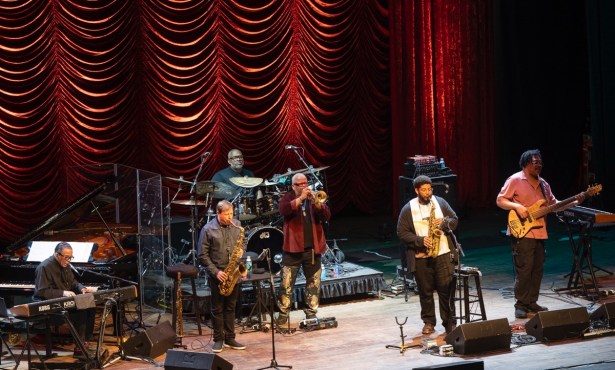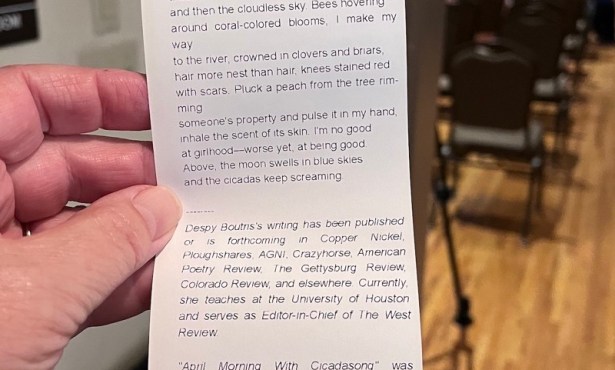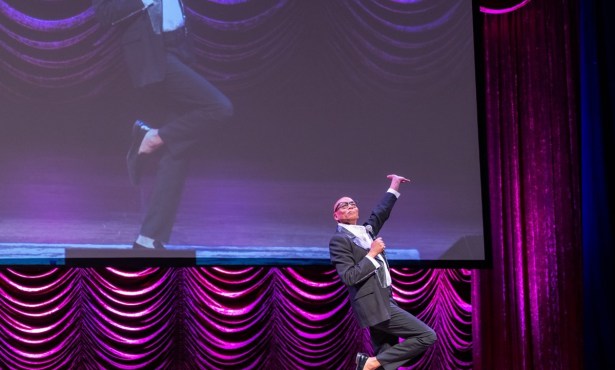Lynn Hunt’s New Book, Inventing Human Rights: A History
The Original Powerful Idea
For the vast majority of humankind’s existence, there’s been no talk whatsoever of rights. Throughout most of our history, we’ve seen ourselves as an undifferentiated mass, any given unit of which can and should be sacrificed for the good-real or imagined-of the whole. In the 18th century, Enlightenment thought shook up this dim view of the individual with a concept that came seemingly out of nowhere: human rights, or natural rights that are universal and applicable everywhere. Lynn Hunt, the Eugen Weber Professor of Modern European History at UCLA, constructs an explanation of the whole phenomenon in a slim, accessible new book, Inventing Human Rights: A History. This Sunday, Hunt will appear in Santa Barbara to deliver the Walter H. Capps Center’s inaugural Wade Clark Roof Lecture on Human Rights, a series honoring the Capps Center’s founding director.

In Professor Hunt’s analysis, the 18th century brought new kinds of experiences that aided the development of empathy in the human mind. The epistolary novel enabled readers to identify for the first time with non-aristocratic characters just like the everyday people around them. The rise of portraiture brought non-mythological, non-biblical figures into a new artistic context. The division of homes into separate living quarters lent an unprecedented dignity to those who had previously made no bones about sharing sleeping arrangements with strangers. These developments and more introduced the idea of autonomy, that a person is the owner of his or her own body and possesses unique desires and preferences.
“All of these experiences help people to imagine more palpably that other people are like them, and to empathize, therefore, with what people are like on the inside,” said Hunt, on the phone from Los Angeles. “There’s no question that these novels, especially Samuel Richardson’s Pamela, published in 1740, touched a cultural chord, and thus the hearts and minds of thousands and thousands of readers. Ordinary people were not literarily interesting in the same way before the 18th century.”
The era’s economic boom created growing middle classes with the resources to enjoy not just the words of the average person, but images of ordinary people as well. “The 18th century was the beginning of the modern period of continuous growth; people had much more money, which means they had more to spend on disposable items like ordering a portrait,” Hunt explained. “I argue that they could have spent it on a lot of other things, but it’s interesting that they become more engaged with pictures of individuals they don’t know and pictures of themselves. This represents a growing interest in the individual’s body, which leads into not just the question of equality but that of torture and cruel punishment.”
The decline of torture and public execution, coeval with the rise of private spaces, signaled a new mindset for humanity. This change, Hunt argues, was not inevitable, nor was it an obvious one to make; we still struggle today with the very concept of human rights, and especially the paradoxical notion, as inscribed on the United States’ own Declaration of Independence, of “self-evidence.” Nevertheless, the idea of human rights proved compelling enough to spread rapidly and widely not long after its introduction; once its wheels began turning, there was no stopping them, even if they have occasionally been slowed by the kind of large-scale human rights violations that continue today.
“What I want to argue is that equality is not a natural notion,” said Hunt. “Hierarchy is a much more long-lasting concept in human societies; equality is a revolutionary idea. How do you prepare people for the idea that the person down the street should count as much as the highest-ranking member of society? My view is that you can’t possibly think this unless you think that ordinary people are interesting and have their own internal lives that are just like your internal life.”
4•1•1
Lynn Hunt will discuss Inventing Human Rights at Victoria Hall in downtown Santa Barbara on Sunday, November 18, at 3 p.m. The event is free and open to the public. For more information, visit cappscenter.ucsb.edu.



